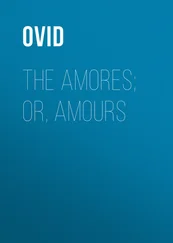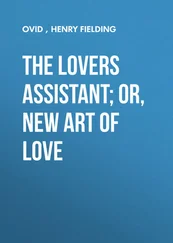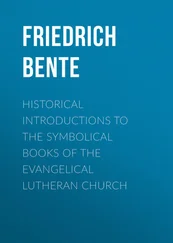Vain are my prayers, O man implacable; harder than iron is thy heart. Thou hearest me and yet thy door of oak is barred against me. That a beleaguered town should need unyielding gates, ’tis well; but in the heyday of peace, what fear hast thou of arms? How wouldst thou treat a foe, if thou repel a lover thus? The night speeds on; slide back the bolts.
I come not as a warrior attended by henchmen. I should be alone, were not cruel Love beside me. Him, even if I desired it, I could not send away. 'Twere easier to sunder my soul from my body. Love, a little a wine in my head, a chaplet slipping from my perfumed hair, these are the things I bring. Who could be scared at them ? Who would be daunted by such foes? The night speeds on; slide back the bolts.
Is it thy slowness, is it sleep that is no friend to Love, that makes thee heedless of my prayers and flings them to the winds? Yet, if my memory deceive me not, when, once on a time, I sought to evade thee, I found thee astir in the middle of the night. Peradventure at this moment thine own belovèd is reposing at thy side. If this be so, how preferable is thy lot to mine. If it be so, pass on to me, ye cruel chains! The night speeds on; slide back the bolts.
Do I dream? Did not the door swing upon its hinges? Did it not grunt its signal for me to enter? Alas, I was deceived! ’Twas but an unruly gust of wind that made it creak. Ah, hapless me! How far away that gust doth bear my hopes. If, O Boreas, thou dost bethink thee of the ravished Orithya, come swiftly hither and, with thy blast, beat down this heedless door. All is quiet in the city. Moist with diamond dew, the night speeds on; slide back the bolts.
Open, I say, open, or I, better prepared than thou, with my sword and with the fire I bear within my torch, will break into this disdainful house. Night, Love and Wine counsel no half-hearted measures. Night knoweth not shame. Love and Wine know not fear. Everything, prayers, threats have I essayed, but all in vain, nought could avail to move thee, O man more deaf than the door thou guardest! Thou wast not made to guard a lovely woman's door. Thy office should be to keep the key of a loathsome dungeon. But see, the morning star is risen, and the cock's shrill trumpet calls the labourer to his task. And, flowery wreath, which from my brows sadly I disengage, lie there upon this heartless threshold through the night. When on the morrow my mistress shall descry thee trailing there, tell her the hours that, sick at heart, I wasted at her door. Farewell, porter; in spite of all, I say to thee, farewell. Mayest thou thyself suffer the agony of unrequited love. Muddy-mettled villain, who wouldst not give admittance to a lover, fare thee well. And ye too, ye cruel doors with your pitiless hinges, and threshold more slavish than the churl that guards thee, to all I say farewell.
Elegy 7. He Curses Himself For Having Maltreated His Mistress
LOAD my guilty hands with fetters, if thou be my friend, now that my anger has departed. Rage it was, look you, that made me raise my hand against my mistress. O madman that I was I To think it was my hand that made her weep! At that moment I would have struck my father and mother; nay, I would have rained blows upon the gods themselves.
But say. Did not Ajax, armed with his sevenfold shield, slaughter the flocks that he seized in the broad meads? And the ill-fated Orestes who, in his mother, wrought vengeance on his father, did he not take arms against the Dark Sisters? And could I, I of all men, dishevel her rangéd tresses? And did this mar my mistress's beauty? Not so, she only looked the lovelier. In such guise they say the daughter of Schœneus, armed with her bow, pursued the beasts on Mænalus. In such a plight did Ariadne mourn, when she beheld the swift south winds bearing away both the sails and the promises of her perjured Theseus. Thus too, O chaste Minerva, but for the sacred fillets that bound her head, Cassandra had lain upon thy temple's floor.
Who would not have called me a madman? Who would not have called me a barbarian? But never a word said she. Her tongue was paralysed with fear. Howbeit I read the mute reproach upon her face, and, though she spake not, her tears were my accusers. Oh, why did not my arms fall from my shoulders? It had been better had I lost a limb. ’Tis against myself that my violence hath turned, and my vigour hath been the instrument of my own torture. Wherefore do I need you more, ye ministers of crime and slaughter? Avaunt, ye sacrilegious hands, and with the fetters ye deserve, be laden. Why, had I struck the humblest Roman, I should have had to answer for it. Have I then more right to strike my mistress? The son of Tydeus left a hideous memorial of his wickedness. He was the first to raise his hand against a goddess. I am the second. And withal, his sin was not so black as mine. I struck the woman whom I said I loved; he did but wreak his fury on a foe.
Now, mighty conqueror, go and prepare thy triumph. Set the victor's laurel crown about thy brows and on thy knees give thanks to Jove, and let the vast throng that grace thy chariot shout aloud, "Io triumphe!" And let thy poor victim fare sadly before thee, her hair unbraided, pale from head to foot but for the bruises on her cheeks.
Better it had been to have left upon her lips the imprint of my own, better that her neck should bear the traces of my loving teeth. Then, even though I was as violent as a mountain torrent, even if I was beneath the sway of blind rage, was it not enough to shout at the poor girl, without roaring out a torrent of horrible threats and tearing her dress from neck to girdle? ’Twas there my violence stopped? Nay, so hardened was my heart, that I dragged her along by the hair and in my barbarous rage I left the mark of my nails upon her dainty cheek. There she stood distraught, her face as white as Parian marble. I beheld her deathlike look, and her limbs trembling like the poplar leaf stirred by the sighing wind, like the slender reed which bends beneath the zephyr's breath, like the wave whose surface is ruffled by the warm south wind. Her tears, long restrained, coursed down her face as the water floweth from the melting snows. ’Twas then I 'gan to feel the blackness of my guilt. Those tears of hers, what were they but my blood? Thrice I essayed to fling myself, a suppliant, at her knees. Thrice she thrust away my dreaded hands. "Lay on," I cried, "and spare not. Vengeance win alleviate thy pain. Tear my face with thy nails, spare not mine eyes, no, nor my hair. Let rage lend strength to thy hands, weak though they be; or at least, to obliterate the sad traces of my crime, braid once more the tresses that my hand so cruelly dishevelled."
Elegy 8. He Curses A Certain Old Woman Of The Town Whom He Overhears Instructing His Mistress In The Arts Of A Courtesan
THERE exists (give ear, all ye who are fain to know a prostitute), there exists a certain old hag named Dipsas. Her name she deriveth from her calling. Never, in a sober state, does she behold dark Memnon's daughter with her steeds of roseate hue. Learned in magic and in the Ææan arts, she hath power to turn the swiftest rivers and make them flow backwards towards their sources. Skilled is she in the virtues of herbs, of linseed twisted on the cabalistic wheel, and of hippomanes. She needeth but to wish, and lo, the heavens grow dark with heavy clouds; to wish again, and lo, the heavens shine in purest splendour. I have seen, Wouldst thou believe it, blood drip from the stars. I have seen red blood overspread the face of the moon.
I suspect that she, living though she be, flies through the shadows of the night, and that her hag's body is covered with feathers. That is what I suspect, and such is the report. In her eyes shines a double pupil whence rays of fiery light dart forth. She calleth forth the dead from the graves, our grandsires and great-grandsires. At the sound of her incantations, the solid earth doth open. She delighteth to profane the chastity of the marriage bed, and her poisoned tongue is not lacking in eloquence. Chance, on a day, made me a witness of her lessons. I was able, thanks to our double doors, to hear unseen. Thus, then, she spake:
Читать дальше












